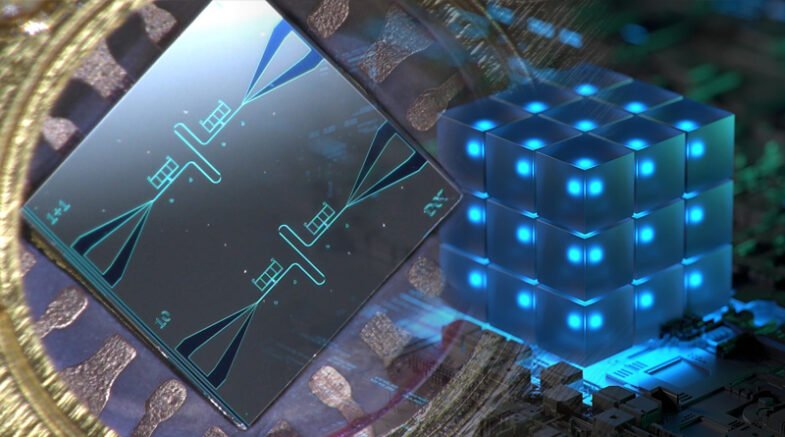The “quantum chip refrigerator,” created by Chinese scientists, is being used to keep quantum chips fresh, according to a report published on Wednesday.

The “quantum chip refrigerator,” created by Chinese scientists, is being used to keep quantum chips fresh, according to a report published on Wednesday by Science and Technology Daily.
Quantum chips are the essential parts of quantum computers, according to Jia Zhilong, deputy director of the Quantum Computing Engineering Research Center in the Anhui Province of east China.
Unlike conventional integrated circuit chips, quantum chips must go through a more involved manufacturing process that is influenced by factors like the environment’s temperature, cleanliness, noise, vibration, electromagnetic waves, and minute impurities.
According to Jia, the superconducting material used in quantum chips is extremely sensitive to its surroundings and is prone to chemical reactions with airborne molecules of oxygen and water.
In the same way that foods exposed to the air can become “oxidised and rotten,” improper storage can cause quantum chips to lose some of their freshness. As a “quantum chip refrigerator,” the new device was created by a Chinese research team to provide a high-vacuum storage environment for quantum chips.
A stable high-vacuum environment is provided for the chip preservation process by the device’s three independent storage chambers and intelligent monitoring system, which measures the vacuum level in real time. In order to achieve fully automatic operation, it also has a human-computer interaction interface.
The processor for quantum computers is a quantum computing chip. The main benefit of quantum computing over classical computing is the presence of quantum bits, or “qubits,” in these quantum computing chips.
A qubit can have a value of 0, 1, or both, whereas a conventional computing bit can only have a value of 0 or 1. This enables quantum computers to process equations and algorithms at rates that are exponentially faster than those of conventional computers. Although this technology is currently only being used on a small scale, it has the potential to fundamentally change how we view computing.
